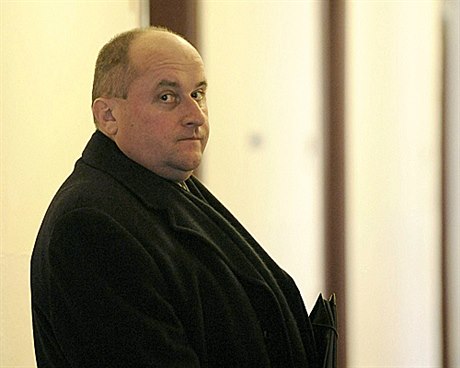MPs held a debate during the current session of the lower house of Parliament on what to do about the attempts — thus far fruitless — of the Committee on Budgetary Control to conduct an audit into the financial management of the Supreme Audit Office (NKÚ), whose president, František Dohnal, has lodged refused access to the NKÚ books and lodged a complaint against the Chamber of Deputies in this matter.
Across party lines parliamentary deputies have taken a critical stance toward Dohnal’s actions. They have adopted a resolution declaring that his written refusals of an audit and his complaint against the Chamber of Deputies have lead to a serious failure in the functioning of institutions of public power. It is the first such sharply formulated document ever to be adopted by MPs against the NKÚ management.
“I must say that I have observed that, on quite a frequent basis, large numbers of letters are being sent to the Budgetary Control Committee demanding an appropriate answer to the current situation, which has already been reported on several times in the media,” said Budgetary Control Committee chairman Vojtěch Filip (Communists, KSČM) during the debate in the Chamber of Deputies. “This means [an answer] to the [high] expenses per civil servant working at the NKÚ, to the situation surrounding the investment into the renovation, and other matters.”
‘Mr. František Dohnal has completely refused to discuss this matter with us.’
Filip added that correspondence with the president of the NKÚ president has as yet proven absolutely futile. “Mr. František Dohnal has completely refused to discuss this matter with us,” he said, referring to the NKÚ president’s unwillingness to provide MPs with the necessary documents to enable an audit.
Markéta Kandráčková, the director of Dohnal’s personal office, explained the situation in a letter. “In order to preclude interferences into the independent status of the Supreme Audit Office, an audit conducted by the Chamber of Deputies needs to adhere to certain basic parameters and procedures and should be carried out with expert care and in a qualified manner,” she stated.
Dohnal claims no clear procedural rules for audits have been set by law. “The fact that procedural rules regarding an audit of [the NKÚ] have only been defined through an internal act of the Budgetary Control Committee itself disqualifies a possible audit from the very outset as being merely a political process without any legal relevance whatsoever,” Dohnal said. He sees the courts as the sole possibility for resolving the dispute.
The Czech Republic an exception
Constitutional lawyer Jan Filip told Czech Position that he is convinced that the existing legislature entitles the Budgetary Control Committee to conduct an audit into the NKÚ. Similar provisions allow for the examination of the audit offices’ finances in France and Germany.
“Only in the Czech Republic have we found ourselves beyond the possibilities available to us under the Czech system of law,” KSČM’s Vojtěch Filip (no relation to Jan) said. The Budgetary Control Committee initially considered sending its resolution to President Václav Klaus but later abandoned this idea. “I figured it would merely lead to a deterioration of relations between constitutional institutions,” Vojtěch Filip explained.
‘It would merely lead to a deterioration of relations between constitutional institutions.’
By law, the NKÚ president can be discharged from office if he is definitively convicted in a court of law or if the disciplinary chamber of the NKÚ asks the Chamber of Deputies to relieve him from his post. President Klaus has the last word on this matter.
On March 21 the court will once again hear the case regarding Dohnal and his family renting of two luxury apartments. He is alleged to have stripped the state of Kč 1.1 million by renting two flats for Kč 76,000 a month. Even though the head of the NKÚ is entitled to housing, the state attorney’s office claims the amount for rent is beyond the “reasonable sum” allowed under the law.
Even if the court finds the NKÚ president guilty this will — strictly according to the law — not change anything about him staying on in office as it is highly probable that he will appeal against such a ruling, which will render it not final. The Czech Republic is therefore possibly the only country where an institution supposed to supervise how state assets are managed is led by someone who is associated with so many scandals, including a lawsuit against the country's very own Parliament.
And, in addition, as Zdeňka Horníková (Civic Democrats, ODS), deputy chairwoman of the Budgetary Control Committee, has been pointing out, by lodging his suit against the Chamber of Deputies Dohnal has in effect forced the Czech state to sue itself.





